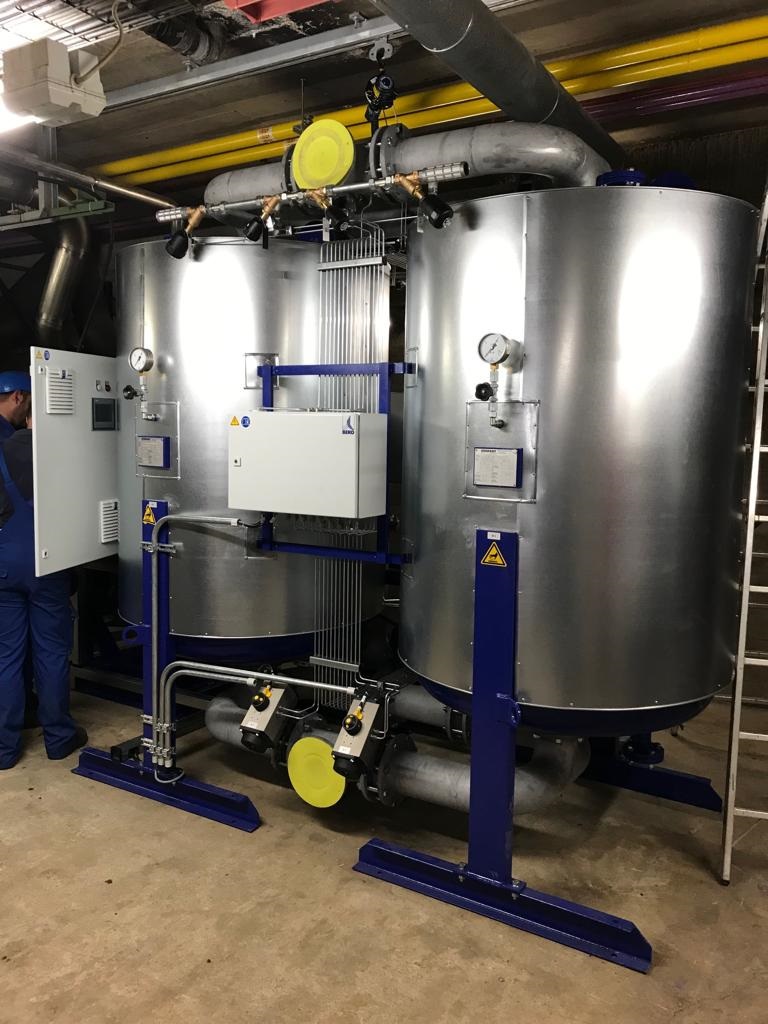Compressed air treatment according to the latest guidelines
The operator is a food & beverage manufacturer that specialises in coffee refinement, among other things. The compressed air is frequently used in production and comes into direct contact with the products (e.g. coffee granulate) at several points. The important certifications in the food industry and the specifications resulting from an audit required a stable pressure dew point (DTP) of below -40°C in order to maintain the desired compressed air class with a DTP of class 2 according to ISO 8573-1. In addition, 100% availability of compressed air in 24/7 operation was required. The compressed air station consists of several decentralised, oil-lubricated screw compressors that are fed to a manifold. In the past, the compressed air was dry at a degree of dryness of <3°C pressure dew point (DTP) and processed oil-free by means of an activated carbon adsorber. The operator took the opportunity of an upcoming refrigeration dryer repair to discuss a replacement with his specialised trade partner Wecker Druckluft and to work out a corresponding concept. The compressed air treatment had to meet the requirements of the audit and the latest guidelines in the food industry, as well as enable a trouble-free pressure dew point. There was also a special challenge: the low room height at the desired installation site precluded the installation of standard dryers of the required performance class.

